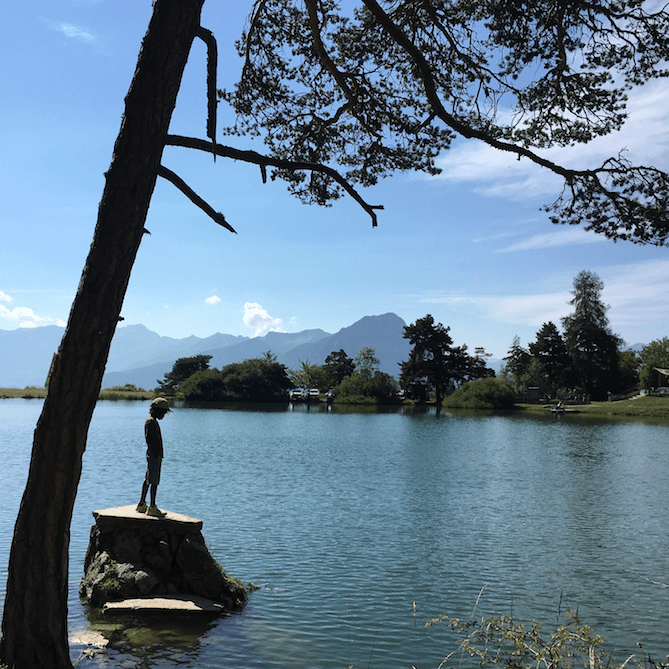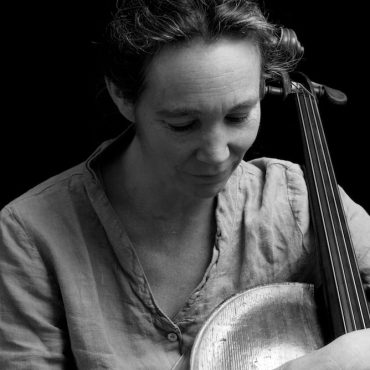
Presence on Stage (Part 4 – Presence)
Ruth Phillips
Presence
“The mind in its natural state can be compared to the sky, covered by layers of cloud which hide its true nature.” – Kalu Rinpoche
Once we learn to generate movement from our core and not interfere with it, once we start to follow rather than control the music, we experience an extraordinary new space.
Presence.
Like a city dweller suddenly finding herself under a huge desert sky, for some this space can be terrifying.
What do I put in it?
Who am I in it?
In fact, it is there we find connection. With ourselves, the music and the audience.
Thought
“In order to really be, you have to be free from the thinking…
Non-thinking is an art and, like any art, it requires patience and practice.”
–Thich Nhat Hanh (Silence: The Power of Quiet in a World Full of Noise)
Thought is necessary. We need to think during our practice – about the composer’s life, the harmony, the metre, the structure. We need to observe how we are playing our instrument and how it corresponds, or not, to what we hear in our inner ear. But thought in the form of planning, judging, remembering and commenting takes us out of the present moment and when we are thinking in this way, clear observation is impossible.
Here is an example of a ‘thought’ during practice, which is in fact a judgement, followed by a clear observation.
Judgement: ‘Out of tune!’
Observation: The note was flat, which means I did not prepare the shift enough. My elbow needs to bounce higher so the forearm falls further.
‘Thoughts’ we have during concerts can be even more harsh: ‘You have no right to be on stage!’ ‘Your teacher will be disappointed!’ But they can also be ‘positive’: ‘Think about releasing your thumb on the G’. ‘Go to the B flat’. ‘Good. Must remember that for next time’. ‘Relax’. ‘Try to be present’.
Every one of these thoughts does the same thing. It takes us out of the present, even the one that asks us to be in it. Because a concert takes place in the present moment, I believe that fifteen minutes’ meditation a day can be far more helpful than four hours’ thinking which we call ‘instrumental practice’. I also believe that if our practice could be composed of clear observation, listening, both leading and following and respecting the natural movement of our body, we would have to do very little of it.
Getting Ourselves Out of the Way
As musicians we fear that, unless we inject every phrase with our ‘personality’, our playing will be boring. Unless we do things to the music we won’t have an ‘interpretation’. However, when a musical line falls like an autumn leaf, or rises like an eagle soaring on a thermal, is this our personality? Or our interpretation? When we are able to get ourselves out of the way, there is no ‘I’ to judge or be judged. Because there is no judgement there is no duality, no perfection, no imperfection, no right, no wrong, no them (the audience) and us (the performer). There is only a magical moment-to-moment unfolding.
The next Breathing Bow retreat will be held in Provence with Ruth Phillips and Jane Fenton. 16-20 October 2018.
_________________________________________________________________
 Ruth Phillips was Born in London in 1964 and studied at the Yehudi Menuhin School with William Pleeth, and in Dusseldorf with Johannes Goritzki. In 1990, Ruth left a successful career with the Chamber Orchestra of Europe to continue her studies with Timothy Eddy at the State University of New York where she received her Masters’ degree in performance.
Ruth Phillips was Born in London in 1964 and studied at the Yehudi Menuhin School with William Pleeth, and in Dusseldorf with Johannes Goritzki. In 1990, Ruth left a successful career with the Chamber Orchestra of Europe to continue her studies with Timothy Eddy at the State University of New York where she received her Masters’ degree in performance.
Described as a ‘consummate coach’, Ruth draws on her training as a Voice Movement Therapist, and on many years’ work with yoga, mindfulness, meditation and Non-Violent Communication. Her generous spirit and organic approach to playing has helped people all over the world suffering from tension and stage fright find presence, ease and inspiration. Ruth runs individual Breathing Bow retreats from her home in Provence and has run workshops at the European String Teacher’s Association conference, the Royal Northern College of Music and the Royal Scottish Academy of Music. With her colleagues, Alexander teacher and cellist Dale Culliford, and yoga teacher and cellist Jane Fenton, Ruth runs group Breathing Bow retreats throughout Europe.
Ruth has an active life as a solo, orchestral and chamber musician on both baroque and modern cellos. Passionate about all types of music, she enjoys regular collaborations with folk singers, The Brothers Gillespie, and the Indian cellist Saskia Rao. She is co-principal cellist of Opera Fuoco in Paris. Ruth’s writing on breath and performance has appeared in many publications including The Strad and BBC music magazines, and her book, ‘Cherries from Chauvet’s Orchard’ was shortlisted for the Guardian women’s memoir award. She was involved in John Beder’s 2016 documentary on stage fright, ‘Composed’, and her playing of Bach is featured on the soundtrack.
http://thebreathingbow.com
Subjects: Playing Healthy
Tags: gravity, inspiration, patience, power, Practice, presence, stage presence, thought
